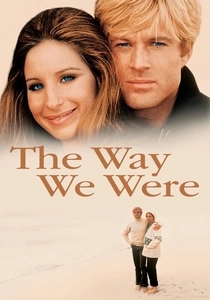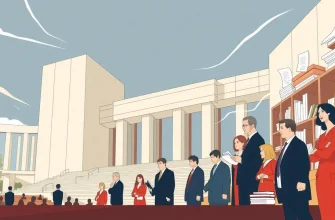The history of communism has been a rich tapestry of political intrigue, ideological fervor, and human drama. These biopics delve into the lives of those who shaped, lived through, or were affected by this monumental movement. From the rise of revolutionary leaders to the personal struggles of ordinary people, these films offer a window into the complexities of communism. Whether you're a history buff, a film enthusiast, or simply curious about this era, this collection provides a fascinating insight into the lives behind the headlines.

The Way We Were (1973)
Description: This romantic drama features a love story set against the backdrop of the 1930s and 1940s, with one character deeply involved in leftist politics, reflecting the era's ideological conflicts.
Fact: The film was nominated for six Academy Awards, including Best Actress for Barbra Streisand.
 Watch Now
Watch Now 
The Front (1976)
Description: While not directly about communism, this film explores the Hollywood blacklist, where writers were blacklisted for their alleged communist ties, highlighting the era's political witch hunts.
Fact: Woody Allen wrote the screenplay and stars in the film, which was one of his rare dramatic roles.
 Watch Now
Watch Now 
Reds (1981)
Description: Warren Beatty stars as John Reed, an American journalist who becomes deeply involved in the Russian Revolution. This epic film explores the personal and political turmoil of the time, offering a nuanced look at the early days of communism.
Fact: The film won three Academy Awards, including Best Director for Warren Beatty. It was also one of the longest films ever nominated for Best Picture.
 Watch Now
Watch Now 
Good Bye, Lenin! (2003)
Description: This comedy-drama captures the fall of the Berlin Wall through the eyes of a young man who tries to shield his mother, a staunch communist, from the truth about the collapse of the GDR.
Fact: The film was a major commercial success in Germany and won numerous awards, including the European Film Award for Best Film.
 Watch Now
Watch Now 
The Motorcycle Diaries (2004)
Description: Before he became the face of revolution, Che Guevara was a young medical student on a life-changing journey across South America. This film captures his awakening to the social injustices that would later fuel his revolutionary spirit.
Fact: The film was shot on location in Argentina, Chile, Peru, and Cuba. It was also nominated for an Academy Award for Best Original Song.
 Watch Now
Watch Now 
The Lives of Others (2006)
Description: Set in East Germany, this film examines the pervasive surveillance by the Stasi, the secret police, and its impact on individuals. It's a poignant look at life under a communist regime, focusing on the human cost of political control.
Fact: The film won the Academy Award for Best Foreign Language Film. It was also the first German film to win this award since
 Watch Now
Watch Now 
The Baader Meinhof Complex (2008)
Description: This film delves into the radicalization of the Red Army Faction, a West German terrorist group influenced by Marxist ideology. It's a gripping tale of how political disillusionment can lead to extreme actions.
Fact: The film was nominated for the Academy Award for Best Foreign Language Film. It was also the highest-grossing German film of
 Watch Now
Watch Now 
The Inner Circle (1991)
Description: Set in Stalinist Russia, this film follows a simple projectionist who becomes part of Stalin's inner circle, offering a unique perspective on the paranoia and control of the era.
Fact: The film was directed by Andrei Konchalovsky, who himself was a former member of the Soviet Union's artistic elite.
 30 Days Free
30 Days Free 
Che: Part One (2008)
Description: This film chronicles the early years of Che Guevara's revolutionary career, focusing on the Cuban Revolution. It's a deep dive into the man behind the myth, showcasing his transformation from a doctor to a revolutionary icon.
Fact: Benicio del Toro won the Best Actor award at Cannes for his portrayal of Che Guevara. The film was shot in Spanish, with English subtitles, and later dubbed in English.
 30 Days Free
30 Days Free 
The Unseen Enemy (1942)
Description: This wartime propaganda film, produced by the U.S. government, focuses on the threat of communism during World War II, offering a historical perspective on how communism was perceived in the West.
Fact: The film was directed by Lewis Milestone, known for his work on "All Quiet on the Western Front."
 30 Days Free
30 Days Free 








